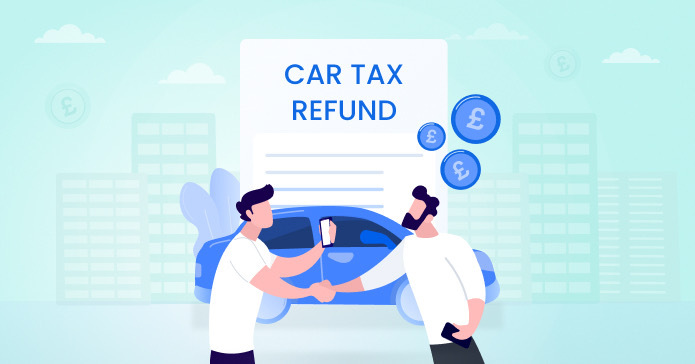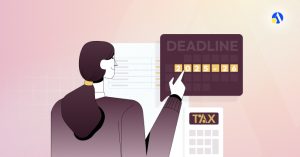Owning a car in the UK comes with a variety of costs, and one of the most significant is car tax, also known as Vehicle Excise Duty (VED). While keeping on top of your car tax bill is vital for staying road legal, there’s good news for those who may have overpaid or are no longer using their vehicle: you could be entitled to a car tax refund.
Whether you’ve sold your car, taken it off the road, or scrapped it entirely, this guide will help you understand how to claim back unused car tax, especially for small business owners who use their vehicles for work.
What Is a Car Tax Refund?
A car tax refund is when the UK Driver and Vehicle Licensing Agency (DVLA) reimburses you for any unused months of Vehicle Excise Duty (VED). Essentially, if you’ve paid for vehicle tax which you’ll no longer be using, the refund allows you to recoup that amount.
For instance, if you sell your car mid-month, you can’t use it anymore as the owner, so the remaining full months of tax can be refunded to you.
Situations where you might qualify for a car tax refund include:
- Selling or transferring ownership of your vehicle.
- Declaring your car off the road with a Statutory Off Road Notification (SORN).
- Scrapping your car at an authorised scrapyard.
- Exporting your car permanently.
- Writing your car off after an accident.
- Automating tax cancellation when a car is stolen or registered exempt from tax (electric or disabled vehicles).
Not only does this process save you money, but understanding it can also help small businesses benefit by properly handling their vehicle fleet taxes while maximising efficiency.
Why Car Tax Refunds Matter for Small Business Owners
If you’re a business owner regularly using a car as part of your operations, the costs quickly add up. Car tax, fuel, insurance, and maintenance are significant expenses, and every opportunity to save counts.
A car tax refund provides financial relief in situations where a business vehicle is no longer needed. For example:
- Fleet Management: If you replace a car in your fleet with a newer vehicle, any unused tax from the outgoing car can be refunded.
- Tax Write-Offs: Accurately managing car tax refunds will reflect positively on your overall business accounts.
- SORN for Long Breaks: If certain vehicles aren’t needed for extended periods (e.g., seasonal downtime), declaring them off-road and applying for a tax refund can reduce cash flow strain.
Talk to your accountant about properly documenting tax refunds for your business. It can result in long-term gains by ensuring you only pay your fair share.
How to Get a Car Tax Refund
Claiming a car tax refund is simpler than you might think, especially with guidance from reliable sources like DVLA. Here's a step-by-step outline to get you started.
Notify the DVLA
The very first step is to inform the DVLA of the status change for your vehicle. You’ll need to tell them why the car should no longer be taxed. Common reasons include selling, scrapping, or exporting your vehicle.
You’ll need the following information:
- Vehicle registration number.
- V5C (logbook) document.
For vehicles going off the road (SORN), you need to declare the SORN online at gov.uk.
Choose Your Method of Application
You can cancel car tax and apply for a refund online, by phone, or by post. The fastest method is through the DVLA website, where you’ll be prompted to fill in the necessary details to cancel and request your refund in one go.
Wait for Confirmation
Once you’ve completed your notification or SORN declaration, the DVLA will calculate your refund based on the remaining full months of unused tax from the date they receive your information.
Receive Your Refund
The refund will typically arrive as a cheque in the post, sent to the registered keeper’s name and address on file. For those using direct debit payments, the DVLA will cancel the arrangement automatically. The refund may take up to 6 weeks.
Note: Refunds exclude card payment fees or surcharges for short-term payments.
FAQs About Car Tax Refunds
1. How do I get my DVLA refund on my car tax?
Simply notify the DVLA of your car’s change in status (e.g., selling, scrapping, declaring off-road). Apply for the refund online or via post. The DVLA will cancel your tax and issue a cheque for any unused full months of tax.
2. Is car tax automatically refunded when you sell a car?
Yes, your vehicle tax is automatically cancelled when you notify the DVLA of a sale or transfer of ownership. The refund cheque will be sent to the address on your V5C form.
3. How long does it take for road tax to be refunded?
Road tax refunds are usually processed within 4 to 6 weeks from the date the DVLA receives your cancellation notice. However, online submissions are often faster.
4. Does tax get refunded automatically?
Tax is only refunded automatically in certain cases, like selling your car or taking it off the road. If you’re unsure, double-check with the DVLA or contact them directly to confirm your situation.
How Debitam Can Help
Navigating tax refunds doesn't have to be complex or time-consuming. Debitam can simplify the process for small business owners. With our support, you’ll benefit from:
- Accurate tax handling so you can save more on business vehicle expenses.
- Professional advice tailored to contractors, self-employed workers, and SMEs.
- Step-by-step guidance for securing refunds and staying compliant with tax regulations.
Whether you need help managing car-related tax matters or filing for refunds, Debitam ensures your financial processes are as smooth as possible.
Get in touch with us today to see how we can help your business drive its finances forward.














